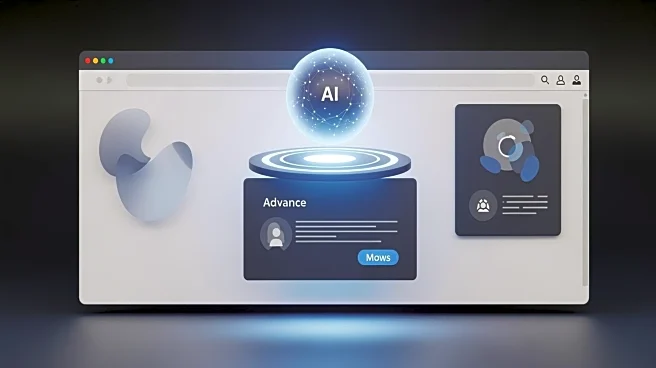What's Happening?
OpenAI has launched a new web browser called ChatGPT Atlas, which integrates the ChatGPT conversational AI directly into the browsing experience. This development allows users to carry ChatGPT's memory
across sites and sessions, enabling the AI to assist with tasks without the need to switch between applications. The browser includes features such as 'browser memories' for recalling context from visited sites, privacy controls, and an 'agent mode' that allows ChatGPT to perform tasks directly within the browser. The browser is currently available for macOS users and is in beta for Business accounts, with plans to release versions for Windows, iOS, and Android soon.
Why It's Important?
The introduction of ChatGPT Atlas represents a significant shift in how users interact with the web, potentially transforming routine web use into a more streamlined and efficient process. By integrating AI directly into the browser, OpenAI aims to enhance productivity and user experience by reducing the need for manual task management. This could have broad implications for industries reliant on web-based research and data management, as well as for individual users seeking more efficient ways to navigate online tasks. The privacy controls and agent mode also highlight ongoing concerns and advancements in user data protection and AI capabilities.
What's Next?
OpenAI plans to expand ChatGPT Atlas with additional features such as multi-profile support and improved developer tools. The company is also focused on enhancing the reliability and speed of the agent mode, which is currently in preview. As the browser becomes more widely available, it is likely to attract attention from both individual users and businesses looking to leverage AI for improved web interactions. The ongoing development and potential integration with the ChatGPT Apps SDK suggest that OpenAI is committed to evolving the browser's capabilities to meet user needs.











